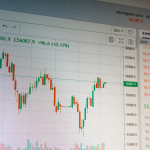In the ever-changing world of finance, the share price of a company often serves as a mirror, reflecting market sentiments, economic trends, and internal corporate strategies. For Australia’s largest bank, the Commonwealth Bank of Australia (CBA), its share price is more than just a number; it’s a key indicator of the bank’s performance, stability, and potential for growth. But what drives the share price for Commonwealth Bank, and why should investors keep a close eye on it? Let’s explore this intriguing financial journey.
Understanding the Commonwealth Bank’s Market Legacy
Founded in 1911, the Commonwealth Bank has grown into a financial juggernaut, commanding respect not just within Australia but globally. Its robust portfolio includes retail, business, and institutional banking, along with wealth management and insurance services. Given its scale, the share price for Commonwealth Bank is often seen as a barometer for the broader Australian financial market.
Investors who delve into CBA’s stock performance find a company that consistently rewards shareholders through dividends and capital appreciation. This legacy of stability and growth has made its shares a staple in many investment portfolios.
Factors Influencing the Share Price for Commonwealth Bank
While the share price for Commonwealth Bank is subject to the same economic forces that impact any stock, certain unique factors play a significant role in shaping its trajectory.
- Economic Conditions in Australia: The health of the Australian economy directly affects CBA’s profitability and, consequently, its share price. Low unemployment, rising consumer confidence, and stable interest rates generally bode well for the bank.
- Interest Rate Policies: As a financial institution, CBA’s revenue is heavily influenced by interest rates. A rising rate environment often boosts its net interest margin, making its shares more attractive to investors.
- Real Estate Market Trends: Given its substantial mortgage portfolio, CBA’s share price often moves in tandem with the Australian housing market. A buoyant property market usually translates to higher revenues for the bank.
- Global Economic Events: Even though CBA is primarily focused on Australia, global economic events such as geopolitical tensions or international market volatility can ripple through its share price.
- Company Performance and Strategy: Quarterly earnings reports, strategic acquisitions, and innovative product launches can significantly impact the share price for Commonwealth Bank. Investors closely monitor these developments for signs of long-term growth.
Analyzing Recent Trends in CBA’s Share Price
The past few years have been a roller-coaster ride for financial markets worldwide, and CBA’s share price has been no exception. During the pandemic, the stock saw significant fluctuations as investors grappled with uncertainty. However, as the economy began to recover, CBA demonstrated remarkable resilience.
In 2023, CBA’s share price hit record highs, fueled by strong earnings and optimistic market forecasts. Analysts attribute this surge to the bank’s ability to adapt to digital transformation and its focus on sustainable banking practices. However, the path wasn’t without hurdles. Regulatory pressures and increasing competition in the fintech space posed challenges, which CBA countered with strategic investments and customer-centric initiatives.
Why Investors Keep a Close Watch on CBA’s Shares
The share price for Commonwealth Bank is not just a metric for institutional investors; it’s also a crucial factor for individual shareholders. Here’s why:
- Dividend Reliability: CBA has a long-standing tradition of paying consistent dividends. For income-focused investors, the share price often indicates the potential yield and the sustainability of future payouts.
- Market Stability Indicator: As one of Australia’s largest companies, fluctuations in CBA’s share price can signal broader market trends, making it a useful indicator for retail investors.
- Growth Opportunities: For growth-oriented investors, the bank’s ongoing investments in technology and green finance represent promising avenues for capital appreciation.
- Blue-Chip Security: CBA’s status as a blue-chip stock provides a sense of security during market downturns, making it a popular choice for conservative investors.
Tips for Tracking the Share Price for Commonwealth Bank
For those looking to make informed decisions, understanding how to analyze the share price for Commonwealth Bank is crucial. Here are some practical tips:
- Monitor Earnings Reports: CBA’s quarterly and annual reports provide insights into its financial health and future prospects. Pay close attention to revenue growth, loan performance, and cost management metrics.
- Follow Market News: Stay updated on economic policies, regulatory changes, and sector-specific news that could impact the bank’s performance.
- Utilize Technical Analysis: Charting tools and technical indicators can help identify trends and potential entry or exit points for trading CBA shares.
- Compare with Peers: Benchmarking CBA’s share price against its competitors, such as Westpac or NAB, can provide context for its valuation and performance.
What Lies Ahead for the Share Price for Commonwealth Bank?
The future of CBA’s share price is as dynamic as the financial markets themselves. With advancements in technology reshaping banking, CBA’s investment in digital platforms positions it well for sustained growth. Additionally, its commitment to addressing environmental and social governance (ESG) concerns aligns with evolving investor priorities.
However, challenges like rising competition, regulatory scrutiny, and global economic uncertainties remain. For investors, the key lies in balancing these risks with the potential rewards that CBA’s shares offer.
Final Thoughts: The Significance of Staying Informed
The share price for Commonwealth Bank encapsulates a world of opportunities for investors who are willing to stay informed and adapt to market changes. Whether you’re a seasoned trader or a novice investor, understanding the nuances behind CBA’s stock movements can empower you to make strategic financial decisions.
In the realm of investing, knowledge is power. And when it comes to the share price for Commonwealth Bank, curiosity isn’t just enticing; it’s essential.





